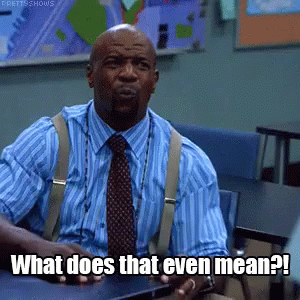Introducing a new series: What does it mean?
Finding the real meaning behind the political terms we hear every day
Do you remember when showing shouting matches at school board meetings seemed to be the main function of cable news? Well I remember one such meeting where an angry gentleman strolled to the microphone and yelled that he didn’t want critical race theory taught in schools because it was communism. His words filled me with embarrassment for him. Regardless of what one thinks of critical race theory or communism, the phrase critical race theory is communism makes absolutely no sense and reveals that the speaker does not understand what one or likely both of those terms mean. I just recently completed my PhD in Global and Imperial History at the University of Oxford (the #1 university in the world for seven years running and the oldest English speaking university in the world, in case you were wondering). As I have reflected on the lessons I learned over my time as a student of both history and political science, one lesson stands out as particularly relevant. The importance of words and their meanings!
Much is made of the fact that Americans of opposing political viewpoints now no longer simply disagree on issues of policy but inhabit separate realities where basic facts are wholly different. Fueling and emanating from this societal breakdown is a public debate where words are thrown about in both directions because of the reaction they elicit with no regard for their actual meaning. Debates can only produce resolutions and allow for progress if the two sides are speaking the same language.
In political science we call this operationalizing terminology. Before making an argument you must highlight the key terms you will use and explain what you mean when you use them, otherwise the whole argument is of no value to anyone else. Furthermore, the famous democracy scholar Giovanni Sartori argued the political terms are “experience carriers” meaning that the history of term and the way it has been used are inextricably linked to its meaning which can evolve over time. While it perfectly acceptable to having differing understanding of a political term, too often American political debates center on words of which both the speaker and the hearer have only a vague or completely incorrect understanding. To this end, Democracy’s Sisyphus is introducing a new series for paid subscribers that will seek to use history to define and operationalize many of the terms that are carelessly thrown about in the modern American political lexicon. So come join us as we investigate terms like republic, democracy, socialism, fascism, populism, and more, and let’s move the conversation forward!





